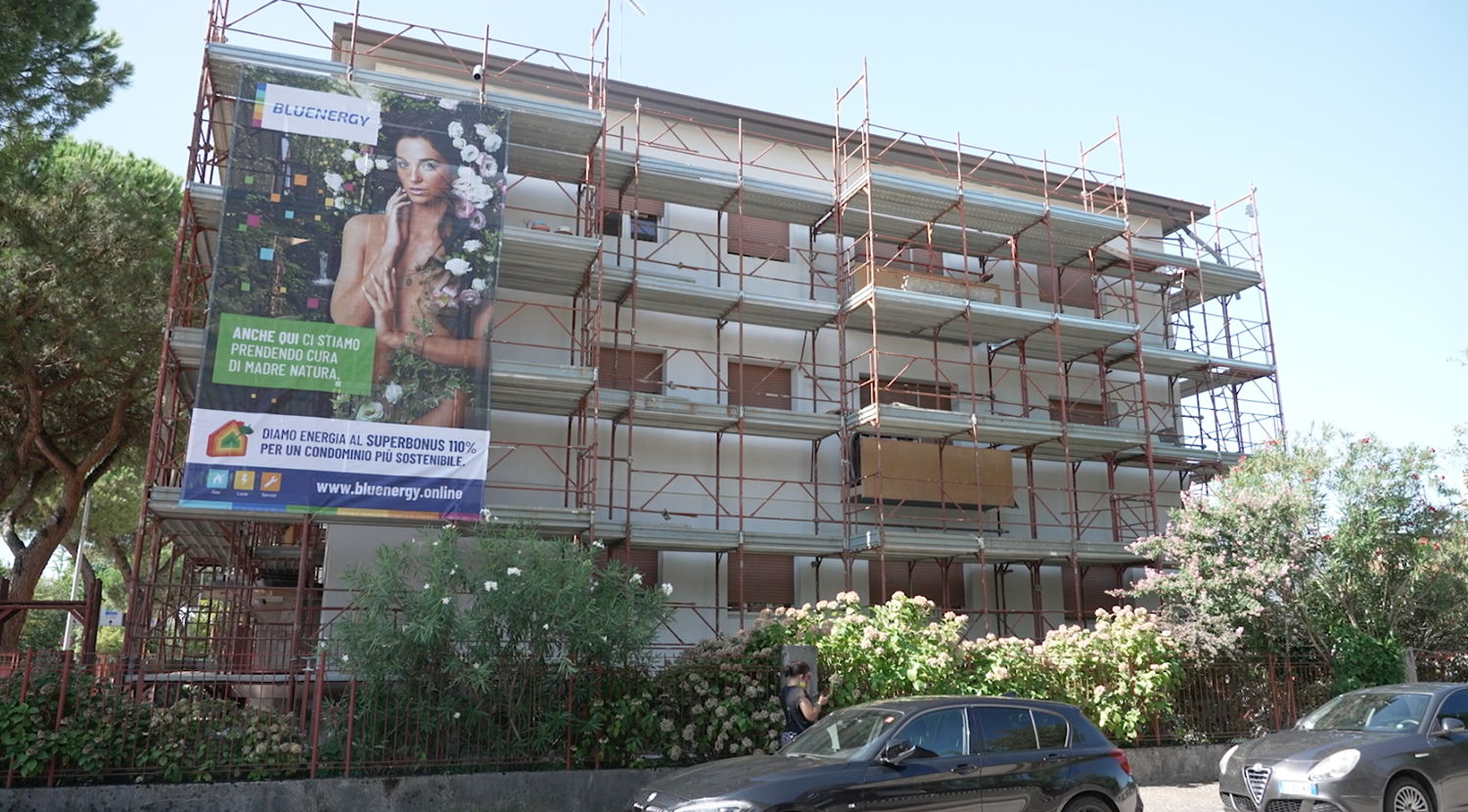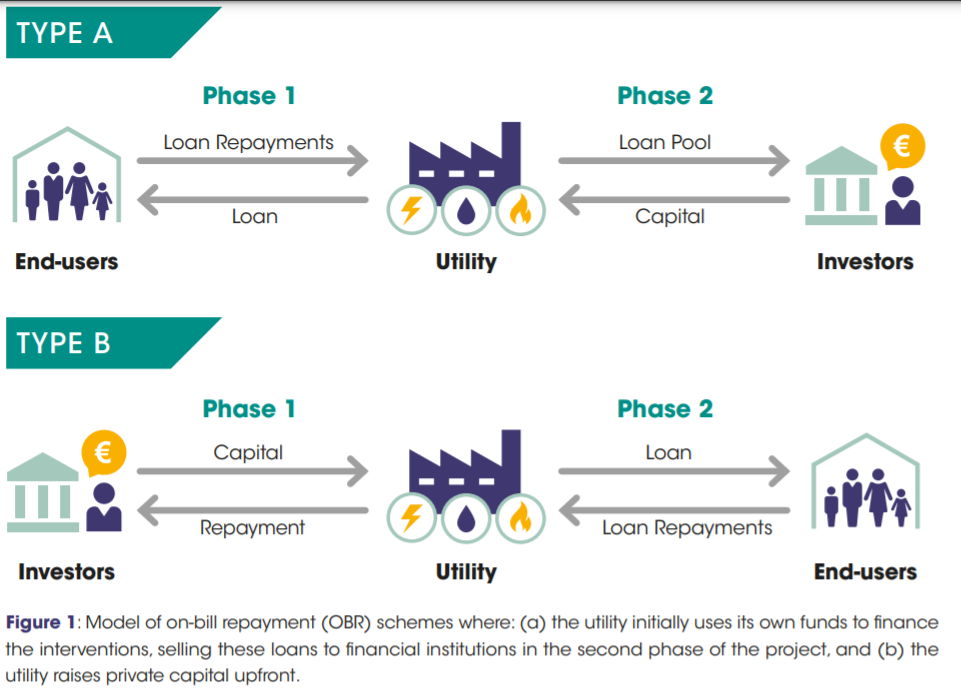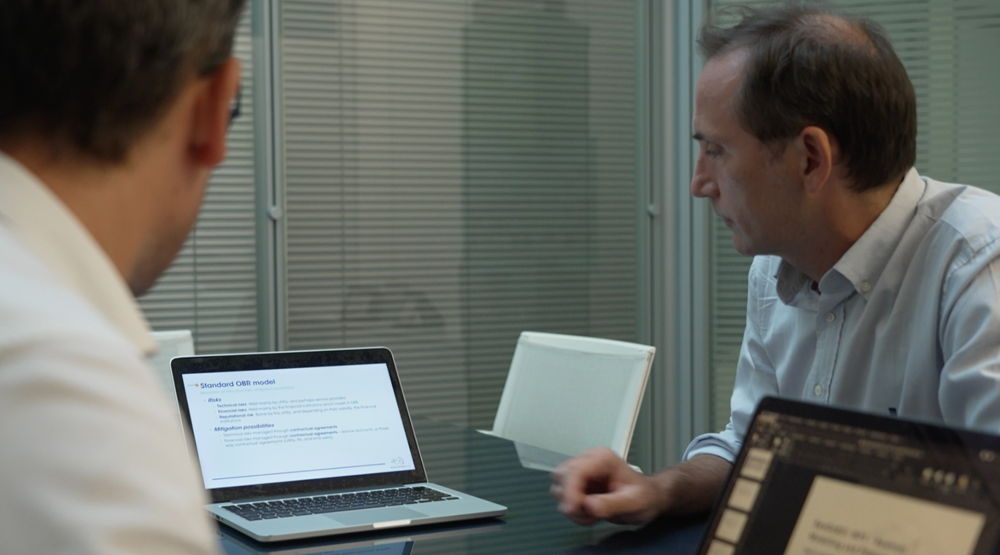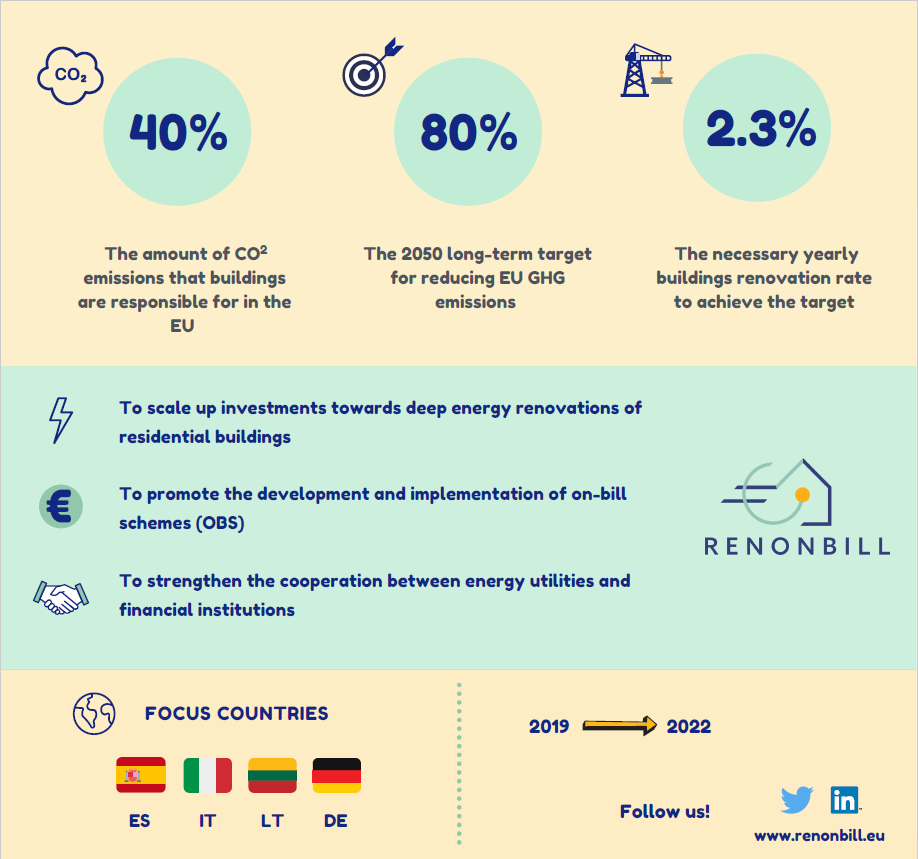Italian pilot project shows on-bill financing schemes can boost residential energy renovations
RenOnBill, a Horizon 2020 initiative that brings financial institutions and utilities together to increase renovation uptake announced as a finalist in the upcoming EU Sustainable Energy Awards.
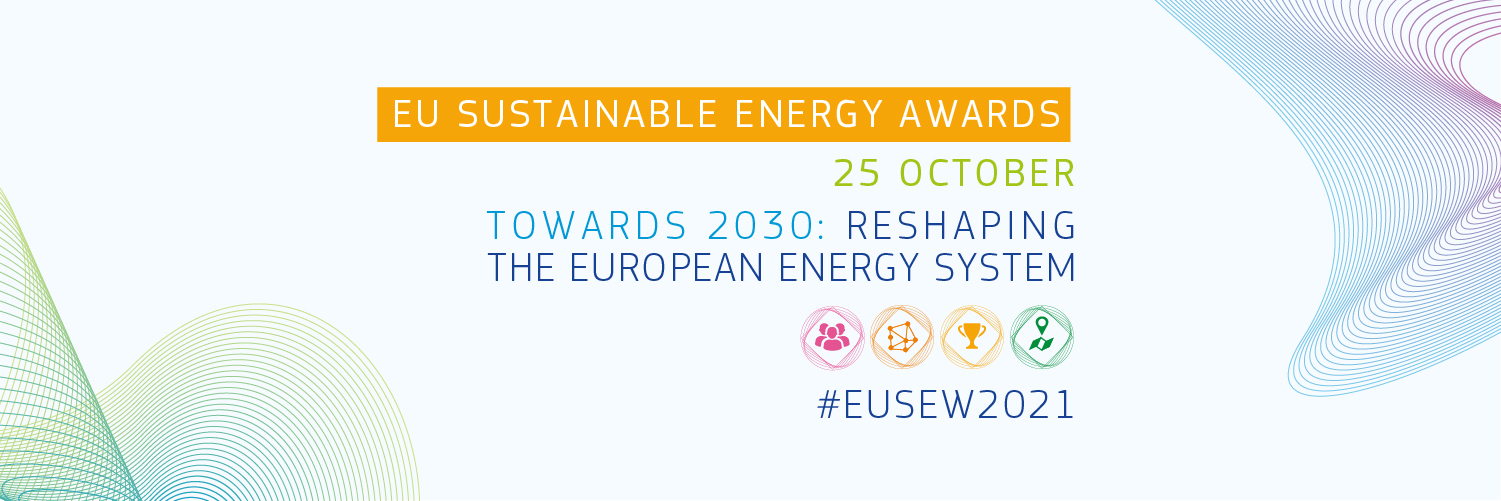
Building renovations could experience a boom across Europe, as building owners may soon be able to leverage an innovative financing mechanism that makes it easier to undertake energy renovations. Through the EU-funded RenOnBill project, utility companies are developing strategies to offer on-bill schemes.
“Together with financial institutions, utility companies cover the initial investment of a building renovation. The resulting savings that homeowners eventually see on their energy bills is used to pay back the utility, appearing as a line item on the customer’s energy bills,” explains Paolo Michele Sonvilla, RenOnBill Project Coordinator from Creara, Spain. “On-bill financing can reduce the upfront costs of energy renovations to zero.”
On-bill schemes are widespread in North America, and RenOnBill now aims to assess the replicability of such schemes across Europe, starting with pilot initiatives in Italy, Lithuania and Spain.
“Energy consumption can easily be reduced by 25-30% on average,” says Andrea Favalessa of Italy's Blueenergy Group SpA when discussing the effectiveness of renovations in reducing CO2 emissions. “In Italy, we are currently working on 100 buildings. The main measures we use are adding or improving insulation and renewing heating systems. This has a huge potential to reduce energy consumption in Europe’s existing building stock.”
A renovation of this type typically takes about 3 months but the benefit of increased comfort and lower energy costs remain with the owners and residents for decades. This market instrument allows renovations to take place quickly and at no extra cost, and are paid back over a number of years, eliminating financial barriers to renovation.
Following European building renovation objectives, the project team looks at all the ways to save energy in buildings and brings financial institutions and utility companies together. Business model guidelines for on-bill schemes, which could extend the replicability of the project, are also one of the main results of the project that will soon be published.
The project, which is funded under the EU’s Horizon 2020 programme, contributes to the EU’s Renovation Wave Strategy that sets out to at least double renovation rates in the next ten years and make sure renovations lead to higher energy and resource efficiency. Initiatives such as this one are bringing the EU closer to the 2030 targets.
Innovators working for a clean, secure and energy efficient Europe
RenOnBill is one of three finalists shortlisted for the EU Sustainable Energy Awards 2021 in the Innovation category. The award recognises outstanding EU-funded activities that show an original and innovative path toward the clean energy transition. The two other contenders in the category are LIFE-DIADEME and PERFORM.
LIFE-DIADEME is an Italian project that offers a low-cost way to save energy in public lighting while monitoring environmental conditions. PERFORM is a pan-EU project that aims to reduce the environmental impact and CO2 emissions of the chemical industry.
EU Sustainable Energy Awards recognise champions of 2030 climate and energy targets
Twelve outstanding individuals and projects are highlighted at the EU Sustainable Energy Week (EUSEW) 2021 for their innovation in energy efficiency and renewables. Finalists were chosen from a list of the year’s most successful projects for clean, secure and efficient energy. The awards have four categories - Engagement, Innovation, Woman in Energy and Young Energy Trailblazer – as well as the Citizen’s Award, which will be received by one of the projects in the first two categories. Prizes will be awarded by an expert jury (for Engagement and Innovation), and by citizens via a public vote, which is now open until 22 October. The five winners will be announced on Monday 25 October during EUSEW 2021.
EUSEW 2021
EUSEW 2021 runs from 25 to 29 October 2021, under the theme ‘Towards 2030: Reshaping the European Energy System’. Taking place ahead of the decisive COP 26, the event brings together energy policy experts, industry leaders, academia and civil society representatives to discuss how forward-looking policies for decarbonisation, energy efficiency, climate mitigation, and many others comprising the European Green Deal, can help rebuild a better and more resilient society and economy.
EUSEW 2021 is held as an online event once again, with more opportunities than ever to connect, engage, network and reflect on the biggest issues in clean energy in Europe and beyond.
Registrations for participants and for media are now open.
For interview requests with the EUSEW 2021 Award finalists or additional media information, please contact media@eusew.eu
